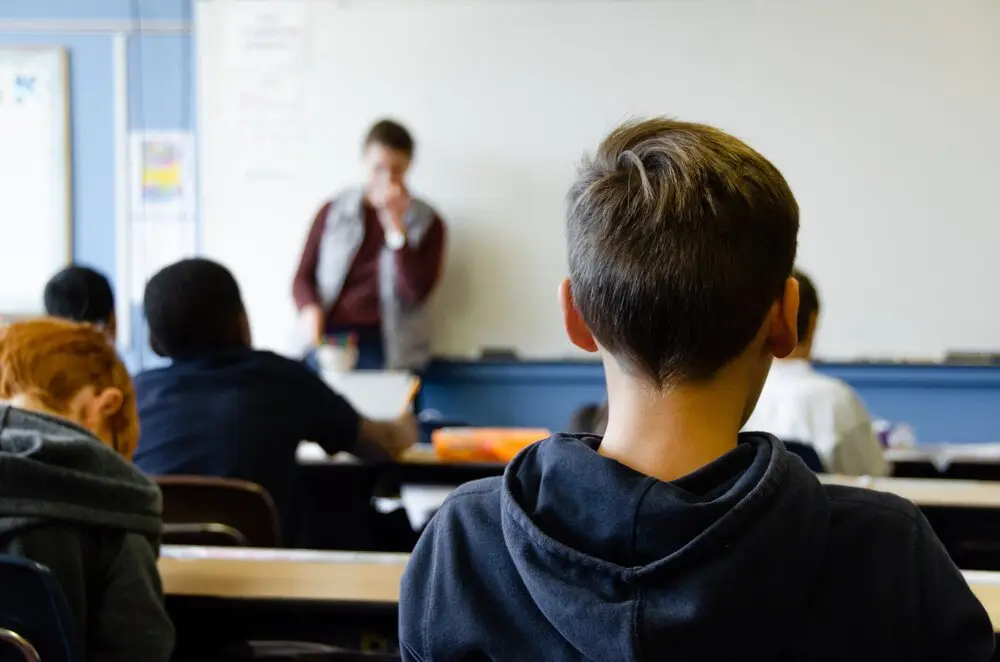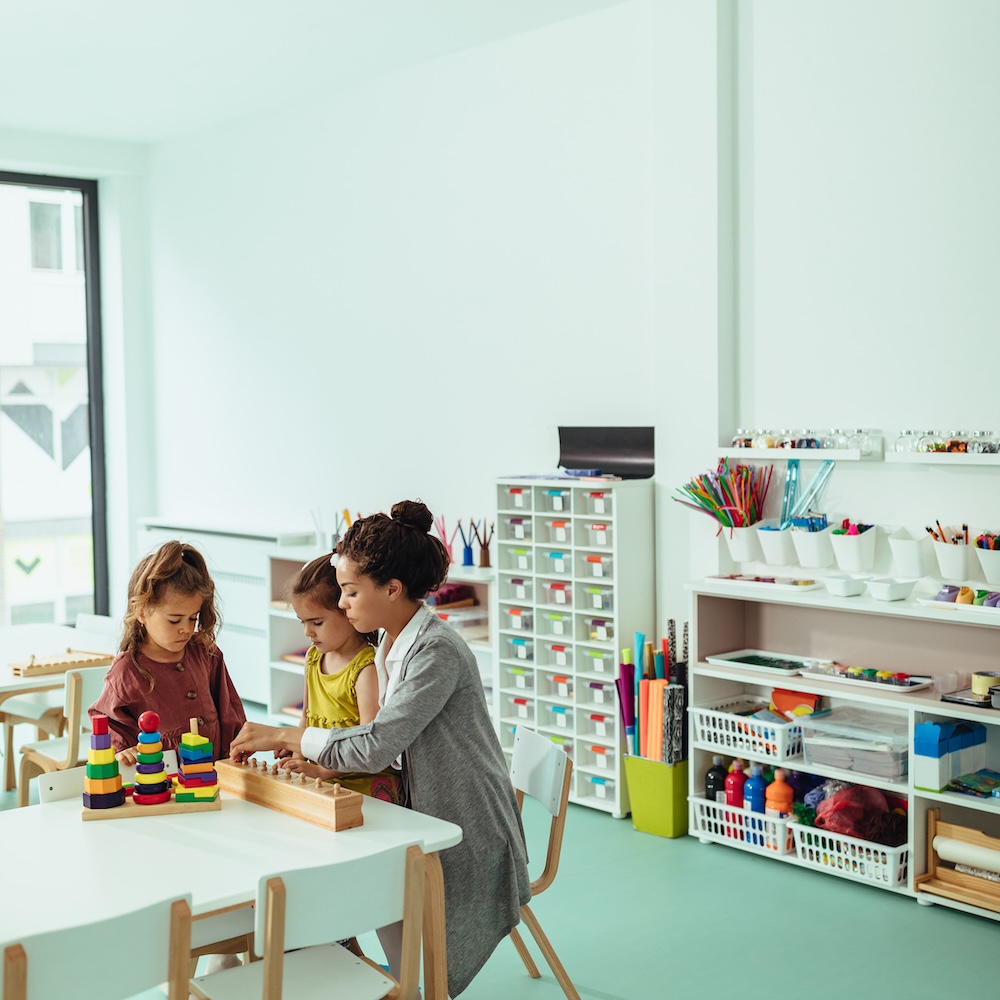

As a parent, you want the best for your child, especially when they face challenges that affect their ability to succeed in school. We provide private, comprehensive neuropsychological testing for children, adolescents, teens, and young adults (ages 3-21) who may need individualized education program (IEP) services. This specialized testing is often a key step in ensuring your child gets the support and accommodations they need to thrive academically.
IEP can include, but is not limited to, being given more time for testing, having a more individualized or 1:1 setting for instruction, a student aid, or a different schedule of classes.
We test for a variety of mental health conditions and learning or cognitive disabilities, such as ADHD or autism. Testing provides insight into certain social, behavioral, or cognitive strengths and weaknesses. Results from testing are used for proper diagnosis, treatment planning, and ensuring students in need of accommodations get the help they need.
If you’re in need of IEP testing in the San Diego, California, area contact KMN Psych today. We’re committed to simplifying the testing process so you and your family can get the help you need.Contact us at 858-224-2906 to learn more or schedule testing today.
Neuropsych testing for IEP is critical to setting a student up for success in an academic setting. Testing measures various factors to clarify why you or your child may be having challenges at school — from learning or concentration issues to social or behavioral problems. Following testing, our team of experts compile a report of our findings, giving schools the information they need to create the most effective individualized education plan so students can get the support they need to thrive at school.
Common signs that indicate the need for a neuropsych evaluation include, but are not limited to:
If you suspect that you or your child may need an IEP, you can initiate the process by contacting your child's school or educational institution or by reaching out to our team of experts at KMN Psych. Call us today at (858) 224-2906.
To evaluate if someone needs an IEP, a comprehensive neuropsychological test is required. The goal of testing for IEP is to provide a proper diagnosis and treatment plan that can be implemented in an academic setting. In many cases, difficulty at school can be the first indicator of a need for IEP testing — and that includes social or behavioral issues, mental health conditions, learning challenges, or physical disabilities.
If you suspect that you or your child may need an IEP, it's essential to initiate the process by contacting your child's school or educational institution.
The type of assessments administered vary from one client to the next, but the process will always include:
Neuropsych testing typically lasts three to five hours but varies from individual to individual, depending on which assessments are being administered.
At KMN Psych, the analysis, interpretation of results, report compilation, and additional documentation will be completed in approximately one week.
The cost of IEP testing varies based on the client's individual needs and the assessments being administered.
Insurance often covers testing, but it depends on your coverage and carrier. Contact our team of insurance specialists at KMN to learn if testing would be covered for you. We also accept non-insurance clients.
Learn More: Does Insurance Cover Neuropsych Testing?
As a parent, you will provide crucial information about your child's behavior and how it affects her life at home, in school, and in other social settings. Your pediatrician will want to know what symptoms your child is showing, how long the symptoms have occurred, and how the behavior affects your child and your family. You may need to fill in checklists or rating scales about your child's behavior. In addition, sharing your family history can offer important clues about your child's condition.




To qualify for an IEP, students must undergo comprehensive evaluations that assess cognitive abilities, behavior, and learning challenges. At KMN Psych, our neuropsychological testing covers areas like attention, memory, and problem-solving to determine whether a child meets the requirements for an IEP, which is often needed for students with learning disabilities or other conditions that affect their academic success.
We guide parents through the entire process, helping them understand the results and how they impact eligibility for IEP services. As a parent, this ensures you have a clear path forward in securing the proper accommodations and support for your child.


The referral process for IEP testing can begin when teachers, parents, or school staff notice a student struggling with academic performance or behavior in a classroom setting. Whether it’s difficulty concentrating, a suspected learning disability, or emotional challenges, these concerns can lead to a special education evaluation.
Parents can also initiate the IEP evaluation process without any recommendation from the school system if they are concerned about their child’s struggles with behavior, learning, and education. At KMN Psych, we offer private assessments outside the school system, providing parents with a detailed evaluation and clear recommendations. This allows for a smoother referral process, giving you the insights needed to advocate for your child’s educational needs.
A special education evaluation is conducted to evaluate if someone needs an IEP, which includes standardized tests, cognitive assessments, behavioral observations, and emotional evaluations. These standardized tests help provide objective data on a student’s mental abilities, academic skills, and emotional functioning.
This evaluation aims to determine if a student has a specific learning disability, emotional impairment, or other condition that affects their educational performance. The results from the assessment provide crucial data for developing an effective IEP plan that addresses each student’s unique needs.
Early intervention is critical in shaping a child’s educational experience, especially for those facing learning disabilities, behavioral challenges, or developmental delays. Identifying and addressing these issues early through neuropsychological testing allows for timely support and accommodations, often improving long-term academic and personal outcomes.
At KMN Psych, early testing helps us pinpoint areas where a child may need assistance, whether in cognitive development, social behavior, or academic skills. By intervening early and developing an IEP, we ensure children receive the tailored support they need to succeed in school, including specialized instruction, behavioral interventions, or learning accommodations.
The earlier these challenges are identified, the more effectively we can help create strategies that prevent them from hindering academic progress. Early intervention boosts a child’s confidence and sets them up for long-term success, both inside and outside the classroom.
If you or a loved one is seeking IEP testing, contact KMN Psych today at (858) 224-2906. We aim to simplify the process for you and are here to support you each step of the way.

If you or a loved one is seeking IEP testing, contact KMN Psych today. Our goal is to simplify the neuropsychological testing process for you and we are here to support you each step of the way.

Parents play a crucial role in the IEP evaluation process, and it’s essential to understand the legal rights and protections available to you. From the initial referral to the development of the IEP, parents have the right to be fully involved at every step. This includes providing parental consent for testing, reviewing the evaluation results, and participating in meetings to determine the best course for your child’s education.
At KMN Psych, we ensure that parents are well-informed about their rights under federal law, including the Individuals with Disabilities Education Act (IDEA). You can request an evaluation, provide input, and challenge decisions that may affect your child’s education. Additionally, due process safeguards ensure that if there are disagreements regarding your child’s IEP, parents can resolve these issues through mediation or hearings.
Our team at KMN Psych is dedicated to guiding you through these procedures, ensuring transparency and op
After completing the testing, KMN Psych provides a comprehensive written report that breaks down the results in an easy-to-understand format. This report includes critical elements such as test scores, diagnoses, and recommendations for the appropriate services through an IEP. Our detailed findings give insight into your child’s cognitive, behavioral, and academic needs, helping to ensure they receive the support required to thrive in school.
This report is valuable for parents and essential for school districts, education agencies, and public schools to implement the necessary accommodations. Accommodations may include extended testing time, behavioral support, or specialized learning strategies to help your child succeed academically.
An IEP is not a one-time solution—it must evolve as your child grows and their needs change. Reevaluation is a crucial part of ensuring that the IEP remains effective. At KMN Psych, we offer reevaluation services to assess your child’s progress regularly and update the IEP accordingly.
Whether adjusting accommodations, recommending new strategies, or identifying new areas of concern, reevaluation ensures that the IEP reflects your child’s current abilities and challenges. Keeping the IEP up-to-date, we help ensure your child receives the proper support throughout their educational journey.


Parents have the legal right to request an Independent Educational Evaluation (IEE) if they disagree with the school’s evaluation of their child’s needs. This right, protected under the Individuals with Disabilities Education Act (IDEA), allows parents to seek an objective, third-party assessment to ensure their child’s educational and cognitive needs are accurately understood.
At KMN Psych, we provide comprehensive and unbiased evaluations that offer a fresh perspective on your child’s learning and development. These evaluations can help clarify areas of concern and provide detailed recommendations for the appropriate support. If you’re exploring the option of an independent assessment, our team is here to discuss how we can assist in assessing your child’s needs and offering objective insights that may complement the school’s evaluation.
By providing an independent viewpoint, KMN Psych helps parents advocate for their child’s best interests, ensuring that the right educational plan is in place to foster academic success.
As part of our screening process, we help guide you through every step, ensuring that you receive the necessary support and information. Whether you’re seeking IEP testing or a comprehensive evaluation, we’re here to help. Let us walk you through the process and get you started on the path to support.
Call us today to schedule your evaluation and take the first step in getting the help you need.
The Individuals with Disabilities Education Act (IDEA) is the cornerstone of federal law governing special education and Individualized Education Programs (IEPs). This law ensures that students with disabilities receive the free and appropriate public education (FAPE) they are entitled to, along with the accommodations and services needed to support their learning and development in school.
At KMN Psych, we ensure that all of our evaluations align with IDEA regulations, guaranteeing that your child receives the services they are legally entitled to. Our neuropsychological assessments provide the comprehensive data required to support a student’s eligibility for an IEP, addressing cognitive, behavioral, and emotional challenges that may impact their learning. Adhering to IDEA’s guidelines, we help students access essential resources, including personalized instruction, behavioral support, and specialized therapies, ensuring they receive an education tailored to their unique needs.
Additionally, we help parents navigate the complexities of IDEA, ensuring you understand your child’s rights under federal law and how these protections apply in public and private school settings. This allows you to confidently advocate for your child, ensuring they receive the accommodations for academic success.

Accommodations in an IEP are designed to support students with disabilities by ensuring they have equal access to the curriculum and can fully participate in their educational environment. These accommodations address various learning challenges and create a more inclusive classroom experience, allowing students to succeed alongside their peers.
At KMN Psych, our assessments help identify the specific accommodations that best support your child’s unique needs.
Commonly used IEP accommodations include:
One of the most common accommodations is allowing students extra time to complete assignments, quizzes, and exams. This additional time helps reduce pressure and will enable students to process information at their own pace. Extended time can benefit students with learning disabilities, ADHD, or anxiety disorders, ensuring they have enough time to complete tasks without feeling rushed.
Assistive technology is vital in helping students with disabilities access the curriculum more effectively. Speech-to-text software, screen readers, and audiobooks can be incredibly beneficial for students with reading, writing, or communication challenges. These technologies allow students to participate more fully in class, complete assignments independently, and develop skills essential for academic success.
Students with sensory processing difficulties may struggle with distractions or overstimulation in the classroom environment. Sensory accommodations, such as noise-canceling headphones, fidget tools, or alternative seating options, can help create a calming space for students. These supports are essential for students who need assistance regulating their sensory input, allowing them to stay focused and engaged during lessons.
Some students benefit from specialized instruction, which involves more individualized teaching methods. This might include small group settings or one-on-one instruction with a special education teacher. Specialized instruction is often used to address specific academic areas where a student may need more attention and support, helping them progress in areas where they struggle.
Visual aids are helpful for students who have difficulty processing verbal instructions or staying organized. These can include visual schedules, charts, diagrams, or instructional images that break down tasks into manageable steps. By providing information visually, these supports help students better understand and retain information, improving their ability to complete assignments and follow classroom routines.
For students facing behavioral or emotional challenges, behavioral supports are critical in keeping them on track. This can include behavior intervention plans (BIPs), which outline strategies and positive reinforcement techniques to help manage behaviors in the classroom. Behavioral supports may also involve regular check-ins with teachers or support staff to ensure students stay engaged and healthily manage their emotions.
In psychology and education, "IEP" stands for "Individualized Education Program." An IEP is a legal document and a critical part of special education services in the United States. It is designed to outline a customized educational plan for students with disabilities to ensure they receive appropriate and effective educational services and support.
Teachers are crucial in implementing Individualized Education Programs (IEPs) for students with disabilities. When reviewing an IEP, teachers should pay attention to the following key elements to ensure that they can effectively support the student in their classroom:
Additionally, teachers need to maintain open communication with the student's special education team, including special education teachers, therapists, and parents or guardians. Collaboration and regular updates on the student's progress and any challenges encountered in the classroom are crucial to the successful implementation of the IEP. By staying informed about the IEP's components and actively participating in its implementation, teachers can help create a supportive and inclusive learning environment for students with disabilities.
Accommodations in an IEP are designed to support students with disabilities in accessing the curriculum and participating in the educational environment. The specific accommodations can vary widely based on the individual student's needs, but here are some of the most common accommodations that may be included in an IEP:
It's important to note that the specific accommodations listed in an IEP are tailored to the student's unique needs based on assessments and input from parents, teachers, and specialists. Regular communication and collaboration among all IEP team members are essential to ensure that the accommodations provided effectively support the student's learning and development.
To learn more information about KMN Psych, verify your insurance coverage, or schedule an appointment for you or your loved one, complete the form below, and we will get back to you in 24 hours. We respect your privacy and hold all information discussed in strict confidence.
Or call us: (858) 224-2906
Bausch, M. E., Quinn, B. S., Chung, Y., Ault, M. J., & Behrmann, M. M. (2009). Assistive technology in the individualized education plan: Analysis of policies across ten states. Journal of Special Education Leadership, 22(1), 9-23. https://eric.ed.gov/?id=EJ839509
U.S. Department of Education. (n.d.). Assistive technology devices and services for children with disabilities under the IDEA. Individuals with Disabilities Education Act. https://sites.ed.gov/idea/
Lindeblad, K., Alkahtani, K., & Rufus, R. (2016). The effectiveness of assistive technology to support students with learning disabilities. Diva Portal. https://www.diva-portal.org/
Kumar, A., & Raja, P. (2010). Assistive technology for students with sensory impairments under IDEA. CEEDAR Center. https://ceedar.education.ufl.edu/
Contact us to learn about KMN Psych, verify your insurance coverage, or schedule an appointment ASAP:
Call us: (858) 224-2906
3760 Convoy Street, Suite 223
San Diego, CA
Email us: info@kmnpsych.com